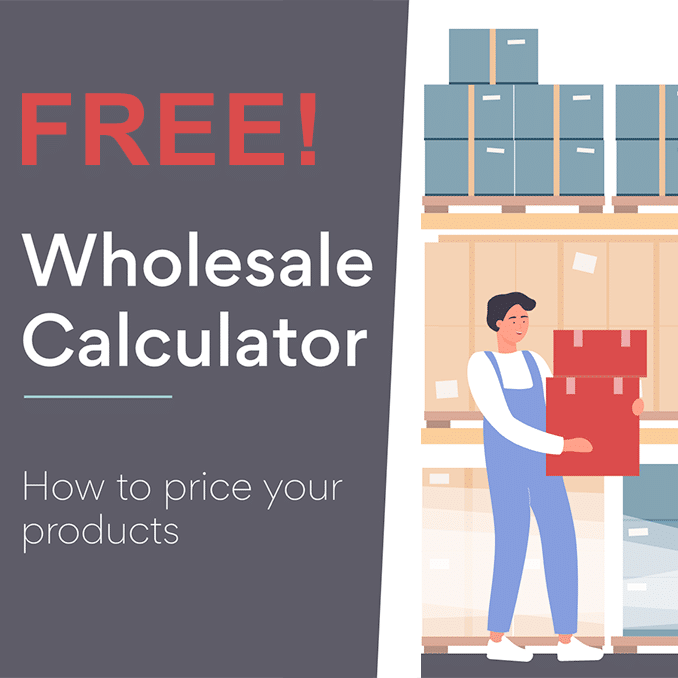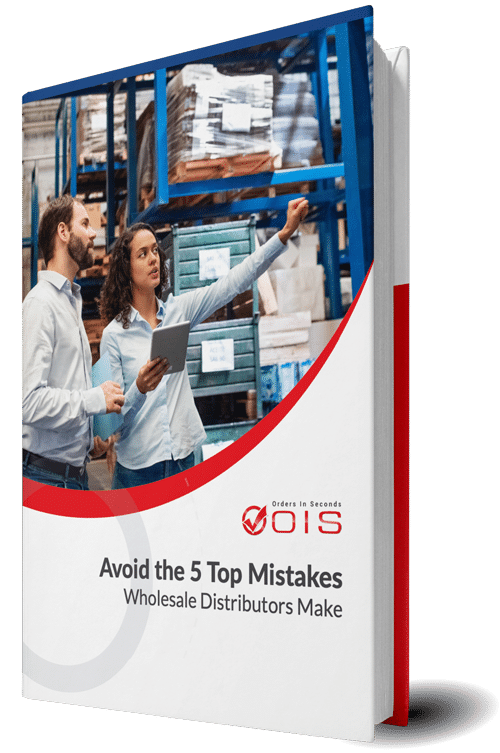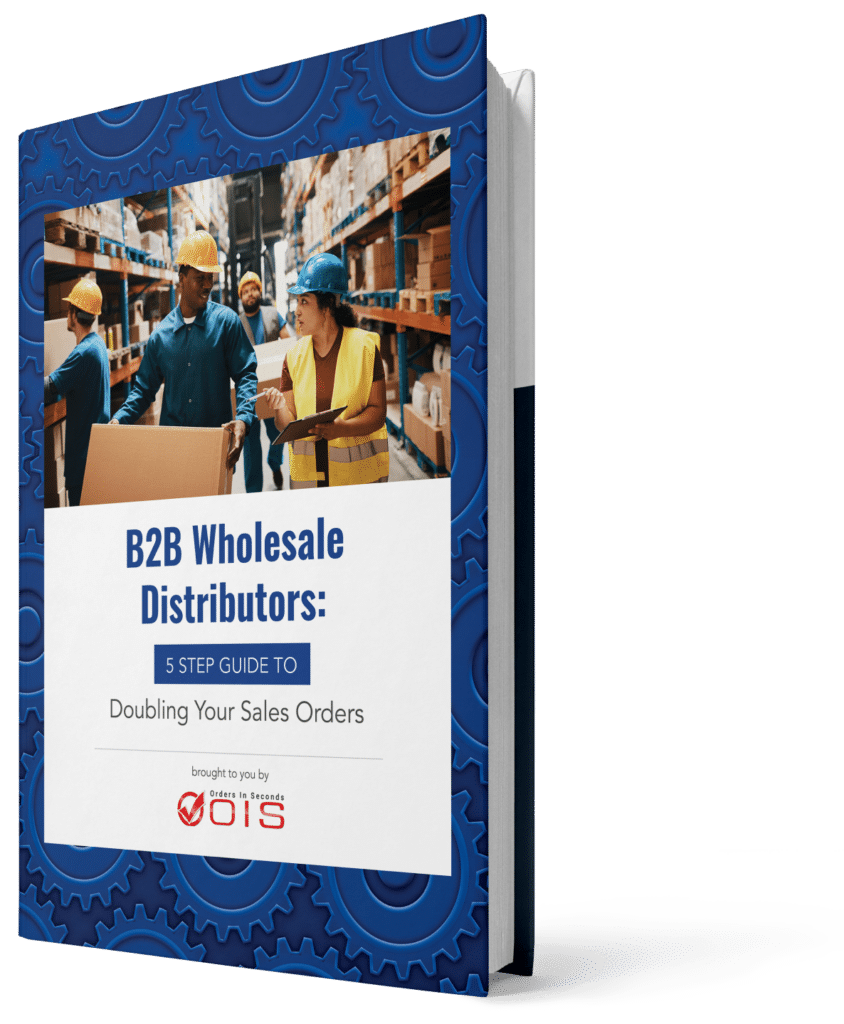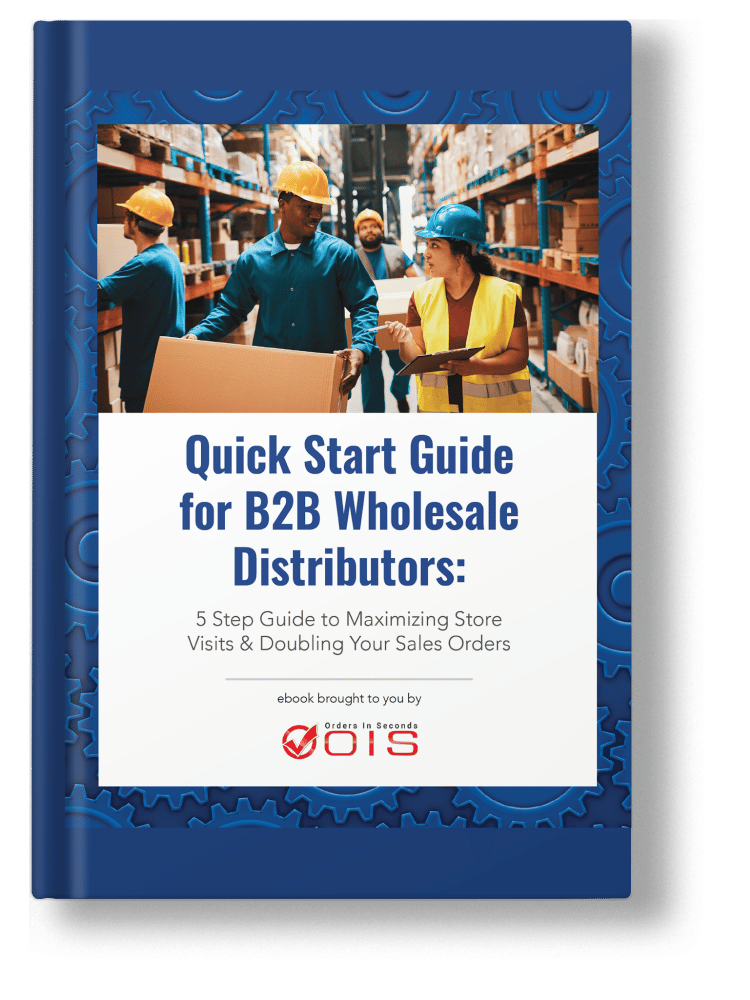Searching for the best wholesale supplier is a critical step for retail businesses seeking to offer value to their customers without compromising on quality or profitability. Whether you’re looking for vast product assortments, competitive pricing, or reliable delivery services, this guide unveils top wholesale suppliers that stand out in the market. Expect insights on what makes these suppliers worthy of their ‘best’ title and how they can be pivotal in bolstering your retail strategy.
Introduction to Wholesale Suppliers
Wholesale suppliers play a crucial role in the supply chain, connecting manufacturers with retailers and online sellers. They offer wholesale prices to businesses, allowing them to purchase products in bulk and resell them to consumers at a markup. Working with wholesale suppliers offers several advantages for businesses, such as improved product selection, marketing support, and enhanced customer service. In this section, we will explore the world of wholesale suppliers, including their benefits, types, and how to find the best ones for your business.
What is a Wholesale Supplier?
A wholesale supplier is a company that purchases products in large quantities from manufacturers and sells them to retailers, online sellers, or other businesses at wholesale prices. Wholesale suppliers can be distributors, wholesalers, or manufacturers themselves. They act as a middleman between the manufacturer and the retailer, providing a convenient way for businesses to purchase products in bulk. This arrangement allows retailers to benefit from lower costs, which they can then pass on to their customers or use to increase their profit margins.
Benefits of Working with Wholesale Suppliers
Key Takeaways
- Wholesale suppliers offer retail businesses significant benefits such as cost-effective deals, larger order discounts, and the potential for sustained relationships, with key players like Faire and Alibaba providing tailored product ranges and reputable service in the marketplace.
- Successful retail requires not just the best prices from wholesalers but also the right criteria in selecting suppliers, including product quality, inventory depth, and favorable shipping terms and conditions to ensure profitability and customer satisfaction.
- Online marketplaces like Faire and Alibaba, along with specialized wholesale platforms and directories, provide retailers with a plethora of options for sourcing a wide range of products, allowing for 24/7 operations and access to unique and closeout products that can help create a competitive edge.
Table of Contents
- Navigating the Wholesale Supplier Landscape
- Types of Wholesale Suppliers
- Essential Criteria for Selecting Wholesale Suppliers
- Top Wholesale Marketplaces for Retailers
- Top 15 Best Wholesale Suppliers for Retailers
- Discovering Niche and Closeout Products from Specialized Wholesalers
- The Rise of Dropshipping Suppliers for E-commerce Success
- Harnessing the Power of Supplier Directories
- Wholesale Suppliers for Specific Industries
- Maximizing Profits with High-Quality Consumer Electronics Wholesalers
- Strategies for Small Business Wholesale Suppliers
- Crafting a Competitive Edge with Unique and Thoughtful Products
- Summary
- Frequently Asked Questions
- Become the Efficient Wholesale Partner Retailers Dream Of
Navigating the Wholesale Supplier Landscape

The foundational step to retail success is identifying top-notch wholesale suppliers. It’s a journey that involves more than just a simple Google search. It’s about market research, attending trade shows, comparing prices, and even seeking expert recommendations. Imagine having a partner who not only provides you with high-quality products but also offers time savings, cost-effective deals, and a potential for building long-standing relationships. This is what a reliable wholesale supplier brings to the table.
Notable players in the wholesale landscape such as Faire and Alibaba have raised the bar, offering a range of products tailored to various business needs in the retail landscape. Their reputation for quality and reliability has made them a benchmark in the wholesale supplier industry. International suppliers, in particular, can provide access to diverse product options, cost savings, and help businesses expand their market reach by sourcing products globally.
Understanding Wholesale Prices
Have you ever wondered why you, as a retailer, can purchase goods at a cost significantly lower than the final selling price? This is the magic of wholesale prices. They’re typically lower than retail prices as they do not include the markup that retailers add to cover their overhead and profit margins. Factors such as the cost of materials, production, and market demand influence the setting of wholesale prices.
This pricing strategy benefits retailers, allowing them to make a profit by marking up the price. Moreover, as the volume of purchase increases, wholesale prices often decrease. This means suppliers offer lower prices for larger orders, which increases the retailer’s profit margin potential.
Economies of scale can be achieved by retailers through:
- Purchasing in larger quantities at reduced prices
- Allowing them to be competitive in the marketplace by offering lower retail prices
- Gaining a higher profit margin.
However, when placing big orders, it is important to carefully evaluate and plan to avoid inventory and financial risks. Strategic planning, quality checks, and clear communication with suppliers are essential to ensure that big orders do not lead to overstock or cash flow issues.
Are you a wholesale distributor looking for an easier way to manage your pricing? Take a look at our free Wholesale Pricing Calculator below!

FREE Wholesale Pricing Calculator
Determining the best pricing is tough work for even the most experienced distributor. With our free calculator, you can calculate wholesale prices for products and much more.
Download your free wholesale pricing calculator now to get started.
The Role of Wholesale Distributors in the Supply Chain
Think of wholesale distributors as the crucial link that connects manufacturers and retailers. They buy products in bulk from manufacturers, and wholesalers sell products to retailers. These distributors offer a wide range of products, including:
- Sports equipment
- Pharmaceutical products
- Baby items
- Baby products
- High-quality meats
It is important to note that distributors source products from a manufacturer, while wholesalers may sell products they have produced themselves.
Types of Wholesale Suppliers
There are several types of wholesale suppliers, each with their own unique characteristics and benefits. In this section, we will explore the different types of wholesale suppliers, including wholesale distributors, dropshipping suppliers, and wholesale marketplaces.
Many businesses adopt a model focused on selling wholesale, offering products in bulk at discounted prices through various platforms.
Wholesale Distributors
Wholesale distributors are companies that purchase products from manufacturers and sell them to retailers or online sellers. They typically specialize in specific product categories, such as office supplies, pet supplies, beauty products, or consumer electronics. Wholesale distributors often have a large inventory of products, allowing them to provide fast and reliable shipping to their customers. They may also offer additional services, such as inventory management and shipping cost savings, to help businesses succeed.
Some popular wholesale distributors include DollarDays, Image Beauty, and Wordmakeup. These companies offer a wide range of products at competitive prices, making them ideal for small business owners and online retailers. When working with wholesale distributors, it’s essential to research their reputation, product quality, and shipping policies to ensure you find the best supplier for your business.
In addition to wholesale distributors, there are also wholesale marketplaces that connect buyers with suppliers from around the world. These marketplaces, such as Alibaba and Wholesale Central, offer a wide range of products at competitive prices, making it easy for businesses to find the best suppliers for their needs. When using wholesale marketplaces, it’s crucial to research the suppliers and read reviews from other buyers to ensure you find a reliable and trustworthy supplier.
Overall, wholesale suppliers play a vital role in the supply chain, providing businesses with access to high-quality products at competitive prices. By understanding the different types of wholesale suppliers and how to find the best ones for your business, you can increase your profit margins, improve your supply chain management, and succeed in the competitive world of ecommerce.
Essential Criteria for Selecting Wholesale Suppliers
When it comes to choosing a wholesale supplier, there’s more to consider than just the price. It is also crucial to understand the supplier’s buyer protection programs to ensure safe transactions and satisfactory purchasing experiences. Retailers must also look at the supplier’s minimum order quantities and pricing strategy to ensure it fits with their inventory turnover and budget constraints. When evaluating new suppliers, it is important to identify any hidden costs that may not be included in the advertised fees, as these can impact your overall expenses.
A diverse product range and substantial inventory are crucial as they can directly influence a retailer’s ability to meet customer demand and manage supply effectively. Competitive pricing strategies based on market demand and competition are beneficial for retailers aiming to increase their market share.
Assessing Product Quality and Variety
Ensuring a consistent level of product quality is a requisite for retail success. This is why it’s crucial to source products from reputable wholesalers that have established quality control processes. But how can you evaluate product quality? A simple yet effective way is to request samples from wholesale distributors before making bulk purchases. Additionally, it is important to contact potential suppliers to request samples and evaluate product quality.
Also, access to a diverse range of products allows retailers to cater to various consumer preferences. The cherry on top is that retailers can source these wholesale products at prices lower than the recommended retail price, offering the potential for better profit margins.
Evaluating Shipping Costs and Times
Shipping cost and time can significantly impact a retailer’s operations. It is important to consider shipping fees and handling fees when planning purchases, as both can add to the overall cost. Wholesale shipping times can vary from one to 45 days, and marketplaces typically offer a variety of shipping options, sometimes with faster delivery at an added cost. By opting for suppliers located in or near their state, retailers can reduce shipping costs and increase delivery speed.
It’s also crucial to thoroughly check parcels before marking an order as received to avoid issues with inventory quality and discrepancies. Thus, careful evaluation of shipping costs and times, along with prudent receiving practices, are critical for effective inventory management and upholding customer satisfaction.
Top Wholesale Marketplaces for Retailers

In this digital age, online marketplaces have emerged as a game-changer, connecting retailers and wholesale suppliers with just a few clicks. Using a curated wholesale marketplace allows retailers to find unique and high-quality products specifically tailored for indie retailers and local brands. Leading the pack are platforms like:
- Faire, which offers personalized recommendations, net 60 payment terms, financing options, and cash back on purchases
- Alibaba, which caters to various retail needs and offers unique features
- Etsy, which is known for its handmade and vintage products
These platforms provide online retailers and suppliers with convenient and efficient ways to buy and sell products online.
On the other hand, Etsy provides a marketplace for independent artisans, offering retailers a source of unique, handmade goods. All these platforms generally enable retailers to access retail wholesale vendors with low minimum order amounts, making them accessible even for small businesses.
Small Business Distributors: The Bridge Between Brands and Consumers
Small business distributors play a vital role in the supply chain, connecting brands with consumers. They source products from manufacturers or wholesalers, often specializing in niche markets or specific product categories. By leveraging their distribution networks, small business distributors can efficiently deliver products to retailers, online marketplaces, or directly to customers. They often provide value-added services like marketing, logistics, and customer support, making them indispensable partners for businesses of all sizes.
Additionally, small business distributors can help retailers manage cash flow by offering flexible payment terms or inventory solutions, ensuring smoother financial operations and stability.
The Advantages of Using Online Marketplaces
Online marketplaces offer numerous advantages for retailers, including:
- Enabling customers to compare prices and products from various sources in one place
- Allowing retailers to operate 24/7, eliminating international trading time constraints
- Offering features such as buyer discovery, order management, and accessible pricing and stock information, enhancing retail operations
- Providing extended payment terms and dedicated customer support for a better retail experience
Ecommerce platforms can integrate with social media channels like Facebook, Spotify, and TikTok to enhance sales reach.
Not to mention, joining an online marketplace can offer several benefits for retailers, including:
- Significantly reducing start-up costs and marketing expenses
- Enhancing trust between buyers and sellers due to the established nature of the platform
- Providing flexible shipping options
- Offering buyer verification
Therefore, it’s vital for retailers to select online marketplaces that suit their specific preferences and needs to ensure a successful business partnership.
Spotlight on Notable Marketplaces
When it comes to choosing a wholesale marketplace, reputation and feedback are crucial indicators of volume potential and the presence of established brands within similar industries. Platforms like DHgate require due diligence from retailers given the potential risk of encountering counterfeit products. Moreover, the fee structures of these marketplaces, which may include charges for product listings, sales, or advertising services, are important to consider for overall profitability.
Faire, an online marketplace boasting over 100,000 brands, provides retailers with the ability to explore a vast selection of products and integrate ordering with their existing shop systems. Some marketplaces, such as Faire or SaleHoo, also offer special pricing or exclusive discounts to members or retail partners, making them attractive options for businesses seeking additional savings. SaleHoo offers a range of high-quality authentic products from prominent US brands like Sony and Disney.
Example of a Wholesale Company
One example of a successful wholesale company is Costco. Costco is a membership-only warehouse club that sells a wide variety of products, including groceries, electronics, furniture, and clothing. Costco is able to offer low prices to its members because it buys products in bulk directly from manufacturers. This allows Costco to pass the savings on to its customers.
Top 15 Best Wholesale Suppliers for Retailers
For businesses seeking to maximize profit margins and expand their product offerings, sourcing from reliable wholesale suppliers is critical. This list of the “Top 15 Best Wholesale Suppliers” provides a starting point for those looking to find diverse product ranges, competitive pricing, and reputable partners. Whether you’re an established retailer or a budding entrepreneur, exploring these platforms can unlock a wealth of opportunities for your business.
Faire
Discover unique, handcrafted, and boutique products for your retail store with Faire, a leading wholesale marketplace connecting you to thousands of independent brands. Find everything from apparel and jewelry to home goods and food, all with easy ordering and flexible payment options.
eBay
Explore a vast and diverse inventory from numerous sellers on eBay, a global online marketplace offering wholesale opportunities across various product categories. Find deals on electronics, clothing, and more, but exercise due diligence with seller verification.
AliExpress
Access a massive selection of affordable products directly from Chinese manufacturers and suppliers on AliExpress. Ideal for dropshipping and small businesses, find competitive prices on electronics, fashion, and home goods, but be aware of longer shipping times.
DHgate
Connect with Chinese wholesalers and manufacturers on DHgate, offering a wide range of products at competitive prices. Find electronics, apparel, and more with buyer protection and secure payment options, making it a viable source for bulk purchases.
DollarDays
Stock up on closeout and bulk merchandise at DollarDays, a wholesale supplier specializing in discounted goods for nonprofits, small businesses, and resellers. Find a wide variety of products, including household items, toys, and apparel, at deeply discounted prices.
Blue Star Empire
Source general merchandise and closeout deals with Blue Star Empire, a wholesale distributor offering a diverse product range. Find everything from tools and hardware to household goods and apparel, catering to retailers and resellers seeking bulk discounts.
IndiaMart
Connect with a vast network of Indian manufacturers and suppliers on IndiaMart, a B2B online marketplace for sourcing various products. Find industrial supplies, textiles, and more, ideal for businesses seeking direct manufacturer relationships.
Liquidation
Bid on and purchase overstock, customer returns, and refurbished merchandise at Liquidation.com, an online auction marketplace for wholesale buyers. Find deals on electronics, apparel, and more, ideal for resellers and businesses seeking discounted inventory.
OrangeShine
Specialize in wholesale fashion apparel with OrangeShine, a leading supplier offering trendy clothing and accessories at competitive prices. Find a wide selection of women’s fashion, ideal for boutiques and online retailers.
SaleHoo
Access a curated directory of verified wholesale suppliers and dropshippers with SaleHoo, a research tool for finding profitable products and reliable sources. Streamline your product sourcing process and find trusted partners for your business.
Tasha Apparel
Stock your boutique with trendy and affordable women’s fashion from Tasha Apparel, a wholesale supplier offering a wide range of stylish clothing and accessories. Find fast shipping and competitive prices, ideal for online and brick-and-mortar retailers.
Tropical Labs
Source wholesale health and wellness products from Tropical Labs, specializing in supplements, vitamins, and beauty products. Find high-quality ingredients and private label options, catering to businesses in the health and beauty industry.
Wholesale7
Discover trendy and affordable fashion apparel with Wholesale7, a global online wholesale supplier offering a wide range of clothing and accessories. Find competitive prices and a vast selection, ideal for online retailers and boutiques.
Wholesale Central
Find a directory of wholesale suppliers and distributors across various industries with Wholesale Central, a B2B platform for sourcing products. Connect with manufacturers and wholesalers for bulk purchases and business partnerships.
Worldwide Brands
Access a comprehensive directory of certified wholesale suppliers and dropshippers with Worldwide Brands, a trusted resource for finding legitimate sources. Find a wide range of products and avoid scams with their vetted supplier list.
Discovering Niche and Closeout Products from Specialized Wholesalers

Specialization is the name of the game in the world of wholesale. Some wholesalers target smaller, specific groups of customers, offering unique subcategories of products to cater to their particular needs. Platforms like Wholesale Central are designed to help retailers find such niche and closeout products, serving as a hub for such specialized goods.
Retailers can leverage these platforms without any membership cost, allowing easy access to an array of niche products. Unlike dropshipping, where products are sourced and fulfilled directly from suppliers as orders come in, wholesale purchasing typically involves buying inventory in bulk upfront and managing fulfillment independently.
Uncovering Unique Finds
In retail, uniqueness is a selling point. Offering high quality brands enhances the overall shopping experience, providing a curated selection of trustworthy suppliers and unique products. Retailers can offer their customers exclusive access to certain products that aren’t available through other channels, providing a competitive advantage. Platforms like Wholesale Central even allow retailers to send out requests for hard-to-find products.
Capitalizing on Closeout Deals
Closeout deals can be a goldmine for retailers, especially when they find the best wholesale suppliers. These suppliers offer a significant quantity of products at steeply reduced prices due to overstock or out-of-season merchandise. Wholesale liquidators acquire surplus goods from name-brand retailers, enabling them to sell products to other retailers at prices much lower than regular wholesale rates.
By researching niche markets with high product demand yet low competition, retailers can uncover highly profitable closeout deals.
Wholesale Suppliers: The Backbone of the Supply Chain
Wholesale suppliers are the lifeblood of many businesses, providing a steady stream of products to retailers, wholesalers, and other businesses. They source products directly from manufacturers or other suppliers and sell them in bulk quantities at discounted prices. Wholesale suppliers support the entire transaction process, from point of sale to delivery, ensuring seamless commerce solutions. By partnering with reliable wholesale suppliers, businesses can optimize their inventory, reduce costs, and ensure a consistent supply of products.
Finding Wholesale Suppliers: A Guide for Small Businesses
Finding reliable wholesale suppliers can be a daunting task, but with the right strategies, it’s achievable. Here are some effective methods to find wholesale suppliers:
- Online Directories: Websites like Alibaba, ThomasNet, and Global Sources list thousands of wholesale suppliers worldwide.
- Trade Shows and Expos: Attend industry-specific trade shows to network with potential suppliers and discover new products.
- Industry Associations: Join industry associations to connect with other businesses and gain access to supplier directories and resources.
- Referrals: Seek recommendations from other business owners, industry experts, and online forums.
Quality Wholesale Suppliers: The Cornerstone of Success
Example of a Wholesale Market
Leading Wholesale Suppliers: Setting Industry Standards
Leading wholesale suppliers are recognized for their exceptional product quality, reliability, and innovative solutions. They often have strong relationships with manufacturers, enabling them to offer competitive prices and exclusive products. By partnering with leading wholesale suppliers, businesses can gain a competitive edge and elevate their brand.
Wholesale Products: A Diverse Range of Opportunities
Wholesale products encompass a vast array of goods, from clothing and electronics to food and home goods. By sourcing wholesale products, businesses can offer a wider range of options to their customers, attract new demographics, and increase sales. It’s important to carefully select wholesale products that align with your target market and brand identity.
Wholesale Vendors: Building Strong Partnerships
Wholesale vendors are the businesses that sell wholesale products to other businesses. Establishing strong relationships with reputable wholesale vendors is key to the success of any business. By working closely with reliable vendors, businesses can ensure timely deliveries, consistent product quality, and competitive pricing.
Wholesale Buyers: Driving Demand and Growth

The advent of e-commerce has led to the rise of dropshipping, a method that allows online small businesses to store large inventories without the need for physical space. It is important to evaluate the quality and reliability of products from a dropshipping supplier by ordering samples or small quantities before committing to larger orders. This model allows for order fulfillment upon request, with companies like Reydon Sports offering value-added services to e-commerce retailers.
For new online sellers and Shopify dropshippers, wholesale supplier directories, particularly those based in New Zealand, can be especially useful in connecting with dropshipping suppliers.
Dropshipping vs. Traditional Wholesale
While both dropshipping and wholesale are viable models for retail, they come with their unique sets of advantages and disadvantages. Unlike traditional wholesale, where the retailer manages inventory and order fulfillment, dropshipping allows retailers to outsource these tasks to suppliers, freeing up storage space and reducing the complexities of handling products. However, while both models can be scaled, in dropshipping, the suppliers manage the expansion of business which can lead to less control for the retailer over stocking and shipping.
Identifying Reliable Dropshipping Partners
Selecting a reliable dropshipping partner is critical. Retailers must prioritize the consistent quality of products and maintain a high standard of customer service and satisfaction. It’s also important to be wary of potential warning signs when assessing dropshipping partners, such as the presence of subscription fees, offering supposed wholesale prices directly to consumers, and stipulating minimum order sizes that are not aligned with the dropshipping business model.
To find dependable dropshipping suppliers, retailers can employ several strategies such as:
- Reaching out to manufacturers for wholesaler lists
- Conducting thorough internet searches
- Buying from competitors to identify suppliers
- Attending industry trade shows
In the era of information overload, supplier directories have emerged as a crucial tool to connect retailers with reputable wholesalers. Retailer supplier communication is not directly facilitated by the platform. Directories like Wholesale Central focus solely on connecting retailers with suppliers, not facilitating direct buying or communication.
It’s also worth noting that face-to-face communication at trade shows presents an opportunity to foster a good working relationship and leverage negotiations for better prices with wholesale distributors. By using online supplier directories and engaging in networking at trade shows, retailers can find the most suitable wholesale suppliers.
Benefits of Supplier Directories
Using a supplier directory offers several benefits to retailers, including:
- Significantly reducing the time and effort it takes to locate and verify potential suppliers
- Streamlining the process of forming new supplier relationships
- Identifying reliable dropshipping suppliers through directories that screen for legitimate and high-quality wholesalers.
These directories offer a platform to compare different dropshipping wholesalers, making it easier to find partners that match business needs. Wholesale Central, for instance, helps retailers search for products and provides supplier contact information and resources. It also allows retailers to send out requests for hard-to-find products.
Examples of Leading Directories
Depending on the industry your retail business belongs to, you may want to consider industry-specific wholesale suppliers. For instance, Shenzhen, China, known as the ‘Silicon Valley of China’, houses numerous companies that focus on the production of consumer electronics, making it a key hub for sourcing electronic products.
Alternatively, if you’re in the beauty industry, Image Beauty distributes a variety of products, including cosmetics, hair care items, and fragrances. Additionally, for those in the home decor sector, there are suppliers offering extensive collections of stylish home goods and accessories, with quick shipping services and connections to a variety of suppliers.Wholesale Suppliers for Resellers
Wholesale suppliers for resellers provide a crucial link in the supply chain, offering products in bulk quantities at discounted prices. These businesses cater to retailers, online sellers, and other resellers who seek to purchase goods for resale. By leveraging wholesale suppliers, resellers can often source products more competitively, expand their product offerings, and improve their profit margins.
USA Wholesale Suppliers
The United States boasts a vast network of USA wholesale suppliers that cater to businesses across the country. These suppliers offer a diverse range of products, from electronics and apparel to home goods and industrial supplies. By partnering with reputable USA wholesale suppliers, resellers can access high-quality products at competitive prices and benefit from reliable shipping and customer service.
Wholesale Suppliers for Specific Industries

Depending on the industry your retail business belongs to, you may want to consider industry-specific wholesale suppliers. For instance, Shenzhen, China, known as the ‘Silicon Valley of China’, houses numerous companies that focus on the production of consumer electronics, making it a key hub for sourcing electronic products.
Alternatively, if you’re in the beauty industry, Image Beauty distributes a variety of products, including cosmetics, hair care items, and fragrances.
Beauty Industry Wholesalers
For those in the beauty industry, partnering with leading beauty industry wholesalers can make a significant difference. SalonCentric, for instance, caters to professional beauty salons with an extensive selection of over 120 brands in various categories like hair, skin, and nails. Cosmetix Club provides an online wholesale outlet focusing on high-end brands like Dior, Nars, and Lancome, offering an array of luxury options.
Moreover, KCP Wholesale and Great Lakes Wholesale specialize in a range of health and beauty products, offering items including:
- cosmetics
- skincare
- q-tips
- bath products
- hair care products
- body products
There’s even Beautetrade.com, an online platform designed for beauty and cosmetic products, connecting buyers with verified suppliers offering a comprehensive selection of beauty supplies.
Fashion and Accessories Wholesale Vendors
If you’re in the fashion and accessories industry, choosing the right wholesale vendor is crucial. Magnolia Fashion Wholesale, for instance, offers a variety of boutique clothing, including dresses, t-shirts, swimwear, and wholesale clothing, catering to the latest fashion trends.
Small Business Wholesale Suppliers USA
Small business wholesale suppliers USA specialize in providing wholesale products and services to small businesses. These suppliers often offer flexible terms, lower minimum order quantities, and personalized support to help small businesses succeed. By working with small business wholesale suppliers, entrepreneurs can source products that align with their target market and budget.
Maximizing Profits with High-Quality Consumer Electronics Wholesalers
In the world of consumer electronics, partnering with reliable electronics wholesalers is critical to retail success. Petra, for instance, offers a diverse range of consumer electronics, including fitness watches and cellphones, which are popular high-quality tech products for retailers to stock.
Criteria for Choosing Tech Wholesalers
When it comes to choosing a tech wholesaler, it’s important to verify product authenticity. Counterfeit goods can not only harm your reputation but also lead to customer dissatisfaction.
Another important factor to consider is warranty support. Comprehensive warranties often indicate higher product confidence and support.
Recommended Electronics Wholesale Suppliers
When it comes to electronics, the range of products is crucial for retail success, as it meets different customer needs. Recommended suppliers should support a variety of product categories including smartphones, laptops, audio equipment, and gaming consoles. These suppliers should offer flexible minimum order quantities, allowing retailers to manage inventory according to demand. Competitive pricing ensures that retailers can maintain healthy profit margins.
After-sales support and warranty services are also important to ensure customer satisfaction.
Strategies for Small Business Wholesale Suppliers
For small businesses, wholesale distributors often provide additional storage services, which can help simplify supply chain and inventory management complexities. However, to manage inventory, small business wholesale suppliers may need a considerable upfront investment in stock and potentially require warehouse space.
Buying products in bulk from wholesalers can secure stable profit margins, aiding in more precise financial planning for sales.
Negotiating Terms with Wholesalers
Negotiating with wholesalers is an art that requires strategy and clear business goals. Stock volumes can leverage negotiations because high-volume sales significantly affect profit margins. Enquiring about larger volumes than needed can provide insights into the lowest prices a supplier can offer, aiding in negotiations. Offering a deposit might afford better negotiating power for price and terms.
Retailers may benefit from wholesale suppliers who offer:
- Competition-based pricing, leading to easier market entry and potentially higher profit margins
- More flexible payment terms, allowing retailers to manage inventory without tying up capital
- Transparent communication of terms and conditions, including delivery, pricing, and payment dates
- Discounts for larger purchases
- Clear understanding of return policies
Small business owners should discuss these factors when negotiating with a wholesaler.
Building Long-Term Supplier Relationships
Building long-term supplier relationships can offer significant advantages. The reliability and reputation of a supplier, including financial stability, ethical business practices, and industry standing, are vital for building durable partnerships that sustain business growth.
Retailers can gain significant advantages from a wholesaler’s market insights and product advice, contributing to improved product selection and accessibility to market opportunities. Regular communication with suppliers allows retailers to address potential quality issues proactively, which is essential for maintaining customer satisfaction and the retailer’s reputation.
For wholesale distributors looking to strengthen partnerships and offer better service, avoiding common mistakes is key. Download our free eBook, “Avoid the Top 5 Mistakes Wholesale Distributors Make” below.

Avoid the Top 5 Mistakes Wholesale Distributors Make
Crafting a Competitive Edge with Unique and Thoughtful Products
Curated wholesale marketplaces provide a platform for independent retailers to source unique and thoughtful products that distinguish them from competitors. Platforms like Shopify, are tailored specifically for independent retailers looking for unique products. Marketplaces like Shopify facilitate a connection between brands and local retailers, fostering a community that values distinctiveness and thoughtful product selection.
Retailers who utilize curated marketplaces to acquire distinctive products can craft a competitive edge and create a memorable shopping experience for their customers.
Finding Exclusive Products
Finding exclusive products that resonate with your target audience can be a game-changer. Here are some steps to help you find those products:
Explore broad product categories.
Delve into their subcategories to identify specialized unique products with less competition.
Participate in online communities and forums to gain insights into niche markets and innovative product ideas.
Use keyword research to discover what potential customers are actively searching for to find niches and unique products tailored to their needs.
High-end brands or special collections can utilize exclusive distribution to uphold a brand’s elite image and ensure product scarcity in the market. Platforms like Abound offer independent brands and local retailers opportunities to differentiate their inventory with unique products not widely available elsewhere.
Spotlight on Curated Wholesale Platforms
Platforms like Etsy Wholesale, Faire Wholesale, Amazon Handmade, and Ankorstore are examples of platforms dedicated to connecting retailers with unique and handcrafted products. Etsy Wholesale and Amazon Handmade focus on reaching a global audience, while Faire Wholesale and Ankorstore specialize in a diverse selection of handcrafted goods from independent makers.
These platforms support the retail industry by elevating artisans and small producers, allowing retailers to offer distinctive products and create a competitive edge in the market.
Wholesale Stores for Businesses
Wholesale stores are a great way for businesses to save money on inventory. They offer a wide variety of products at discounted prices, which can help businesses to improve their bottom line. Many wholesale stores also offer the option to ship directly to a business’s facility or end location, streamlining logistics and making order fulfillment more efficient. Wholesale stores typically sell products in bulk quantities, so it’s important to have the storage space to accommodate these larger orders. Additionally, businesses should be aware of the minimum order quantities required by wholesale suppliers.
In the ever-evolving world of retail, the secret to success lies in the relationships built with reliable wholesale suppliers. Whether you’re sourcing products from traditional wholesalers, dropshipping suppliers, or curated wholesale marketplaces, it’s crucial to do your due diligence. Evaluate the product quality, diversity, and shipping times, and always negotiate for the best terms. Whether you’re a small business or an established retailer, utilizing supplier directories can help you connect with reputable wholesalers. And remember, in retail, uniqueness sells! So take the time to find those unique, thoughtful products that will set you apart from your competitors. Consider selecting a limited number of retail outlets for their prestige and targeted audience reach.
A reseller buys products from suppliers and sells them to customers without making their own inventory. They use various sales channels and often focus on niche products. Success involves managing supplier relationships, order quantities, and using ecommerce tools, while balancing pricing, quality, and customer service.
To find reliable wholesale suppliers, consider attending trade shows, conducting market research, comparing terms and prices, and seeking expert recommendations. These strategies can help you identify trustworthy suppliers and build strong partnerships.
When selecting a wholesale supplier, consider factors such as minimum order quantities, pricing strategy, product range, and shipping costs and times. These elements can greatly impact your business’s success.
Starting a Small Business with Wholesale
Launching a small business is an exciting journey, but it comes with its own set of challenges—especially when it comes to sourcing products. One of the smartest moves you can make as a new entrepreneur is to partner with reliable wholesale suppliers. These suppliers are the backbone of your inventory, offering high-quality products at competitive prices that can help your business stand out in a crowded market.
Summary
In the ever-evolving world of retail, the secret to success lies in the relationships built with reliable wholesale suppliers. Whether you’re sourcing products from traditional wholesalers, dropshipping suppliers, or curated wholesale marketplaces, it’s crucial to do your due diligence. Evaluate the product quality, diversity, and shipping times, and always negotiate for the best terms. Whether you’re a small business or an established retailer, utilizing supplier directories can help you connect with reputable wholesalers. And remember, in retail, uniqueness sells! So take the time to find those unique, thoughtful products that will set you apart from your competitors. Consider selecting a limited number of retail outlets for their prestige and targeted audience reach.
Frequently Asked Questions
-
1. What Is a Reseller in Retail?
A reseller buys products from suppliers and sells them to customers without making their own inventory. They use various sales channels and often focus on niche products. Success involves managing supplier relationships, order quantities, and using ecommerce tools, while balancing pricing, quality, and customer service.
-
2. What are some strategies for finding reliable wholesale suppliers?
To find reliable wholesale suppliers, consider attending trade shows, conducting market research, comparing terms and prices, and seeking expert recommendations. These strategies can help you identify trustworthy suppliers and build strong partnerships. -
3. What factors should I consider when selecting a wholesale supplier?
When selecting a wholesale supplier, consider factors such as minimum order quantities, pricing strategy, product range, and shipping costs and times. These elements can greatly impact your business's success.
-
4. How can I evaluate the quality of products from a wholesale distributor?
To evaluate the quality of products from a wholesale distributor, request samples before making bulk purchases to assess the product quality and authenticity.
-
5. How can I identify reliable dropshipping suppliers?
To identify reliable dropshipping suppliers, watch out for warning signs like subscription fees and minimum order sizes not aligned with the dropshipping business model. Utilize supplier directories that screen for legitimate and high-quality wholesalers to find reliable suppliers.
-
6. How can I negotiate better terms with wholesalers?
To negotiate better terms with wholesalers, focus on showcasing shared benefits and inquiring about larger volumes to gain insights into the lowest prices. Consider offering a deposit for added negotiating power.
Become the Efficient Wholesale Partner Retailers Dream Of
In today’s competitive retail landscape, retailers prioritize working with reliable wholesale suppliers who can deliver a seamless experience. But managing orders, quotes, and communication across different channels can be a time-consuming challenge for distributors.
Orders in Seconds offers a comprehensive solution for wholesale distributors.
Our solutions empower you to streamline your operations, improve efficiency, and become a more reliable partner for your retailers. Whether your sales reps are taking orders in the field, you’re managing an e-commerce storefront, or your warehouse needs efficient order picking, Orders in Seconds provides the tools you need to succeed.
Boost your efficiency, strengthen your relationships, and elevate your wholesale business. Try Orders in Seconds today!





